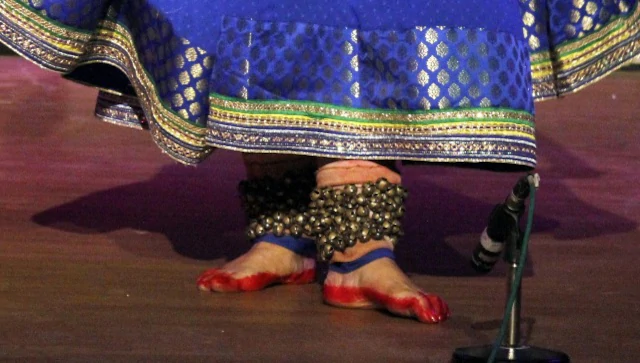Heart healthy lifestyle missing in 9 out of 10 children, says study

- Reporter 02
- 24 Aug, 2022
A heart-healthy lifestyle is found missing in nine out of 10 children from Punjab and Delhi, observes Dr Rajneesh Kapoor, a Punjab Rattan awardee and vice-chairman of interventional cardiology at Medanta Hospital. The principal investigator of the study, Dr Kapoor, and his team examined 3,200 children in the age group of five to 18 years through a questionnaire-based assessment on parameters that affect cardiovascular health.
The study aims to arrest heart disease risk at a young age
The increasing prevalence of childhood obesity, high screen time in children and a lack of adequate physical activity are noticeable. The hypothesis was that this may be the reason for the rising occurrence of heart disease in adults at a young age. “If we know the magnitude of the problem, we can address it adequately and in time. That was an important motive to initiate the study,” explains Dr Kapoor. As a cardiologist with more than 20 years of practice, Dr Kapoor says he feels responsible to contribute more to lowering the burden of heart disease. “The study was a step to raise awareness in society by giving a real data-backed scenario, giving inputs to authorities in healthcare policymakers and contributing as a think tank for heart disease control,” he adds.
Each participant was given a cardiovascular health score based on their responses to BMI (body mass index), physical activity time, bed time, sleep hours, dietary habits and nicotine exposure. The maximum attainable CVH score was set at 100 and subjects were profiled for advice on lifestyle modifications based on their scores relative to it, Dr Kapoor has us know. “A score of less than 40 was categorised as concerning, which means children in this group need intense lifestyle modifications starting as early as possible. A score between 70 and 100 was healthy whereas children scoring between 40 and 70 clearly need moderate lifestyle movements,” says he.
At this stage, the investigators were more attentive to children in urban areas, for the reason that they are more likely to have access to gadgets like phones, seem to have a high rate of junk food consumption and seem to be more indoors. “This is a part of our ongoing study where we have analysed subjects from urban areas and as we move ahead, we will include more sections from the society around us,” adds Dr Kapoor.
Twenty-four per cent of the study population had a CVH score of less than 40, 68 per cent featured in the 40-70 score category, and just 8 per cent met all criteria needed for a healthy cardiovascular system. “Obesity was seen to be prevalent in 38 per cent of the total study population, inadequate sleep was in three per cent but improper bedtime hours were noted in the routine of 75 per cent of children. The body has a 24-hour internal clock, called circadian rhythm, that helps regulate physical and mental functioning. Early or late bedtimes may be more likely to disrupt the body clock with adverse consequences for cardiovascular health,” reasons Dr Kapoor.
Calling all parents
Dr Kapoor urges parents to intervene and facilitate lifestyle modifications in their children who can potentially avert cardiovascular disease risk in adulthood. Children’s lifestyle has a definite role in their risk of developing cardiovascular disease in adulthood. Little or no physical activity followed by poor dietary habits were found to be the topmost factors negatively affecting the CVH scores in the study group. “Most people don’t think about risk factors during childhood but I think it’s actually essential that we all start doing that. Because it’s probably way easier to prevent the development of cardiac risk factors than to try and get rid of them once they’ve developed.”
How can we make small changes early
Diet: It starts with healthy eating. A good diet is one where half the food comprises vegetables and fruits, a quarter is lean protein, and a quarter is whole grain, with a side of dairy.
Physical activity: Another critical step is to keep children moving. Whether it’s through a formal class or just playing at a park, physical activity should be worked into a family’s schedule. “The activity should be age-appropriate and align with the child’s interests. Primarily, I suggest lifestyle modification for all. The heart-healthy lifestyle is the one where there is daily two hours of physical activity, a healthy diet, a minimum of seven hours of sleep in adults, and upto nine hours in children and on time. Say no to nicotine, manage stress, know the values of your BP and sugar and keep it in control,” suggests Dr Kapoor.
Leave a Reply
Your email address will not be published. Required fields are marked *
FSnTxejzMoLXHpJE
RveEFzWsiNYGyAX
FSnTxejzMoLXHpJE
RveEFzWsiNYGyAX











